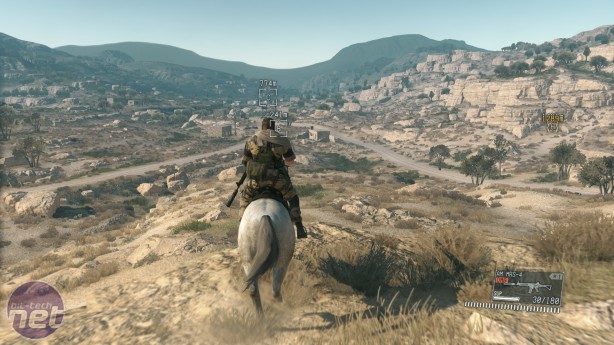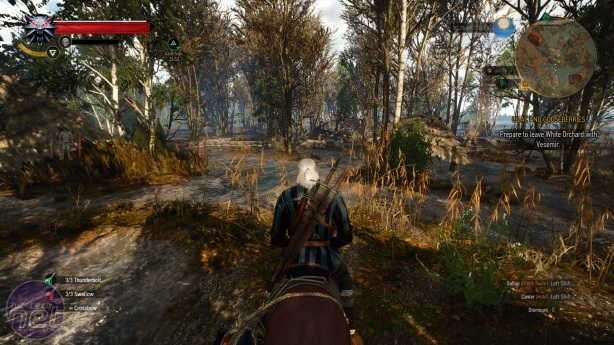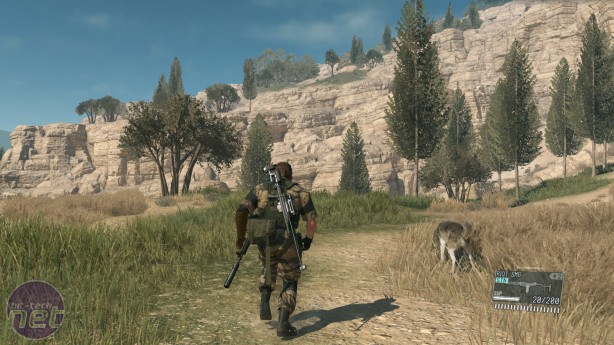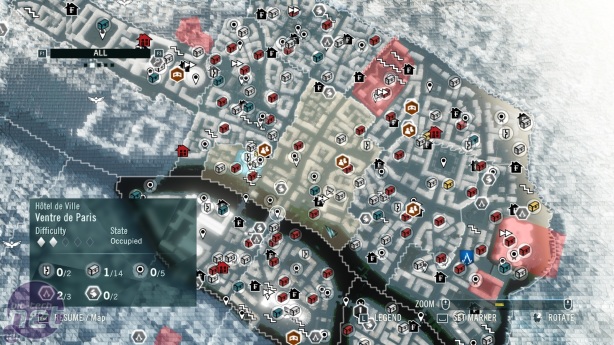
The open world game has changed forever
Like a middle-aged man given up on his dreams, the open-world genre has got a little too comfortable in recent years. Once the most ambitious and inventive side of the mainstream games industry, it now slouches on the sofa flicking idly through TV channels, a lukewarm beer balanced on its paunch, belching occasionally to relieve the acid heartburn sloshing about in its chest.
Through the formula established by Ubisoft in games like Assassin's Creed, since co-opted by other publishers like Warner Bros for Batman and Shadow of Mordor, open world games have settled into a routine. Take one large, pretty landscape, thread it through with some semblance of story, roll out some activity dough and cut out five or six shapes before laying over the top. Then sprinkle liberally with collectibles and crunch until cooked.
Until very recently, almost all open-world games adhered to this structure, both the good ones like Saint's Row - The Third and Far Cry 3, and the mediocre ones like Watch Dogs. But this year everything has changed. Thanks to two games, the Witcher 3 and Metal Gear Solid V, the stakes have been raised for the open world. In the wake of these titles, the design conventions that were acceptable mere months ago now appear dated and possibly obsolete. These two games approach open world design in completely divergent ways, and yet they both share the same basic design principle; make the world fit the character you play as much as humanly possible.
Both the Witcher 3 and Metal Gear Solid V build their worlds from the protagonist outward. Almost every aspect of the Witcher 3 is designed around Geralt. Its morally complex quests deal with uncompromising characters that need a neutral party to intervene in their affairs, which is precisely the stance that Geralt attempts to hold. Meanwhile, the Witcher Contracts allow the player to fully indulge in Geralt's primary occupation. Even the tiny side-attractions like clearing monster nests, helping repopulate abandoned villages, and plundering dungeons for loot, all fit beautifully within the Witcher's world.
In the Phantom Pain, everything funnels toward Snake's metamorphosis into Big Boss. Every mission you complete, item you collect and soldier you recruit takes Punished Snake one step closer to becoming the antagonist of the original Metal Gear. Its open-environments of Afghanistan and Zaire are explicitly described as conflict zones, and everything within these areas is contextualised according to this notion. There are no passive civilians and no discordant side-activities. Even the bizarrely comic action of extracting animals by Fulton balloon is explained through the idea that you are rescuing wildlife potentially endangered by the ensuing conflict.
The priorities exhibited by the Witcher 3 and the Phantom Pain are starkly different from the open world games that have preceded it. Initially the priority of open world games was simply to emphasise that openness and ensure the player had plenty of things to do. This is why Bethesda's games are such chocolate boxes of roles and abilities, and why, throughout the course of Ubisoft's Assassin's Creed series, there hasn't been a single truly great assassination game among them. This isn't to say they're bad games - Assassin's Creed II is a fine vengeance story, and Black Flag is the best pirate game ever made. But they've always been built with a mind to grandeur and spectacle rather than effective stealth, and as a consequence the characters never feel quite at one with the world around them.
As the series has progressed, this problem has become more acute, and instead of fixing it Ubisoft's emphasis has switched from creating convincing open worlds to filling those worlds with as much "content" as possible. This culminated in the ridiculously crammed yet strangely tedious map of Assassin's Creed Unity.
This approach has since filtered out into other Ubisoft titles like Far Cry and Watch_Dogs, to the point where it now has its own name - Ubification. It's a blueprint that has been adopted by other major publishers too, which is why we see many ideas cribbed from one open world game and reworked into another. The base liberation system from Far Cry appears in the recently released Mad Max, and the free-flow combat system from Arkham Asylum is shared by both Mad Max and Shadow of Mordor.

MSI MPG Velox 100R Chassis Review
October 14 2021 | 15:04













Want to comment? Please log in.